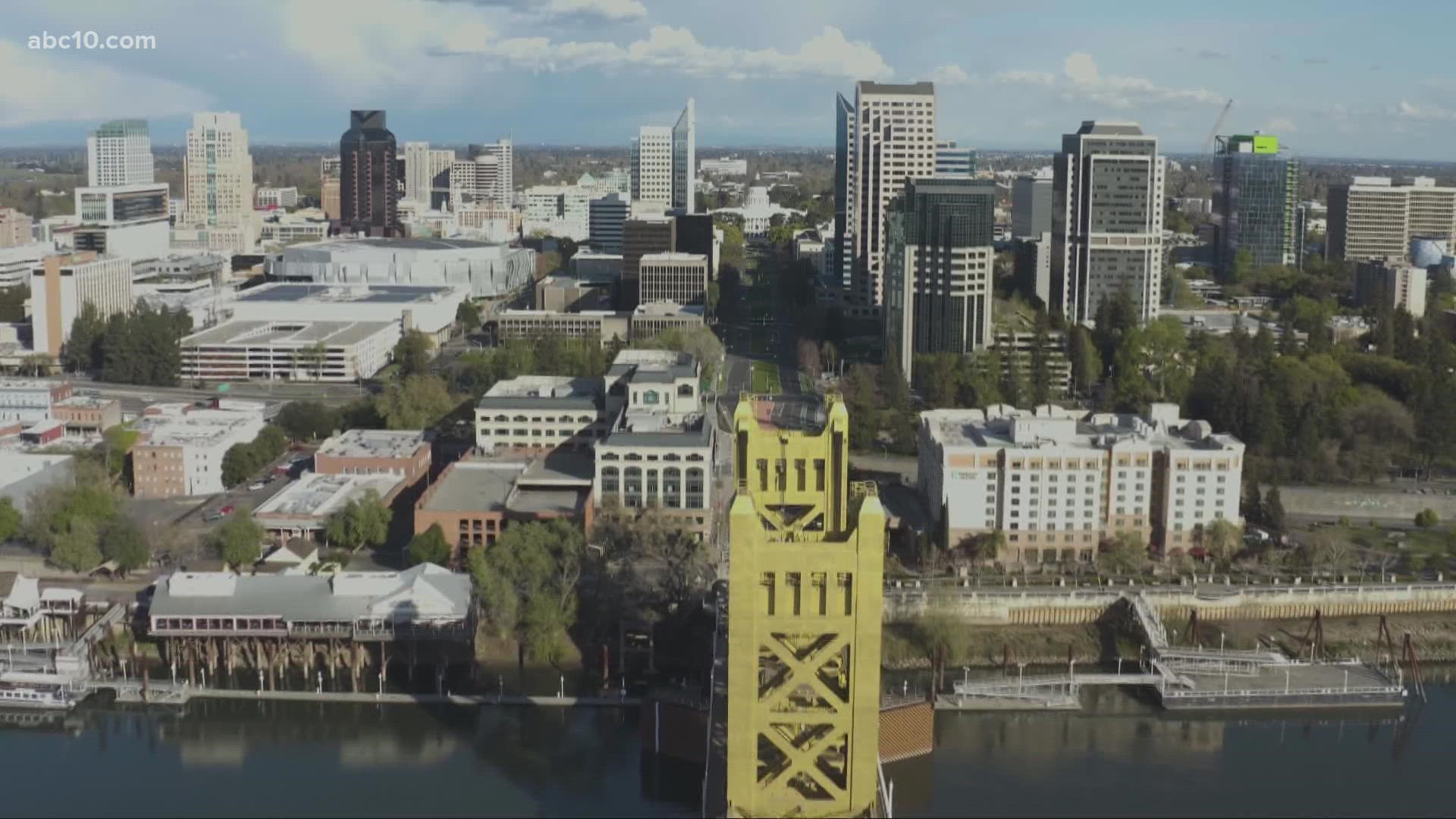SACRAMENTO, Calif. — The City of Sacramento's Racial Equity Ad Hoc Committee passed an item Tuesday calling for adoption of a Land Acknowledgement at the beginning of every Racial Equity Ad Hoc Committee meeting.
The hope is to also get it in front of the city council, who would then adopt it city-wide. This means a Land Acknowledgement statement would be read at the beginning of every Sacramento City Council meeting, its subsidiary committees, boards, and bodies and so on.
Chairman Jesus Tarango of the Wilton Rancheria Tribe was one of the presenters who talked about the importance of the Land Acknowledgement at the committee meeting.
"When you just get down to the bare basics of it, it goes back to just recognition and respect," Tarango told ABC10 Wednesday. "You know, our people were here, this land was settled, even though history will teach you that people felt that it was unsettled. And so for us, it's just acknowledging and recognizing their original inhabitants of the land that we are currently on and just honoring those ancestors that were here. And also, you know, I think it speaks to, we're still here as well."
Tarango went on to talk about how this item, though only passing the Racial Equity Ad Hoc Committee, opens the door for educating people in Sacramento about its indigenous history.
"We definitely have a history of our people in the land, you know, starting around the 1800s, early 1800s. So I believe the next step is for us to do a presentation, you know, to the city council, and let them know, our history," he said.
The Sacramento Native American Health Center (SNAHC) provided the following Land Acknowledgment in the committee report:
"The history of the Sacramento area, and the people, is rich in heritage, culture and tradition. This area was, and still is, the Tribal land of the Nisenan people. Sacramento was a gathering place for many local Tribes who have lived throughout the central valley and the foothills for generations and were the original stewards of this land. We would like to acknowledge the Southern Maidu people to the North, the Valley and Plains Miwok/ Me-Wuk Peoples to the south of the American River and we would also like to honor the Patwin Wintun Peoples to the west of the Sacramento River.
We acknowledge that we are standing on the tribal lands of Sacramento’s Indigenous people."
SNAHC defined the acknowledgement as, "a formal statement, a public recognition, of the Indigenous Peoples who have been dispossessed and displaced from their ancestral homelands and territories due to a variety of colonial and historical reasons."
Sacramento Councilmember Mai Vang, District 8, proposed the Land Acknowledgement Presentation and Recommendation item to the Racial Equity Ad Hoc Committee during its inaugural meeting.
"For me, it was really important that, as we embark on our mission to truly achieve racial equity in the city, it is incredibly important that we move forward with intentionality," Vang said. "As a city, we are operating on indigenous peoples' ancestral homeland."
Vang went on to say that the Land Acknowledgement is just the first step.
"It is a formal recognition to honor the indigenous people whose land we are on," she said.
It is something Tarango echoed in the context of history and potential future actions.
"So even making sure that they also understand their history so that if they're wanting to hopefully do a land acknowledgment at all city council meetings, it's going to incorporate everybody and include everybody that shared this region," he said.
"I don't think that in itself (Land Acknowledgement) can do justice to the harm that has been caused to the indigenous communities in Sacramento, but it is truly just the first step," Vang added. "It's really the action part that will matter what we do, not just with the Land Acknowledgment, but how we engage our indigenous communities and all the policymaking that we do as a governing body."
Moving forward, Vang said the committee voted to move the item to the full council for consideration. A date for when this will be put on the city council's agenda is unknown at this time.
"It's our place to try to put ourselves (out) there and to let people know that we were here, teach them our history, but let them know that we were here, we're still here, we're going to continue to be here," Tarango said. "And really just educating them. You know, I think that's the main thing we have to educate the people."
Recent State legislature action on Land Acknowledgements
According to legislature.ca.gov, AB-1968 Tribal Land Acknowledgment Act of 2020 was introduced by Assembly Member James Ramos in January 2020. The bill would have authorized "any school, state or local park, library, museum, or other state or local government building in this state to adopt a land acknowledgment process by which Native American tribes are properly recognized as traditional stewards of the land on which the entity is located."
The bill died in the State Senate on Nov. 30, 2020.



















